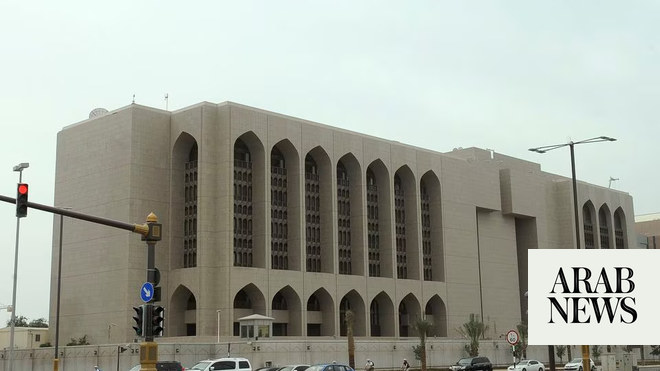
RIYADH: The UAE’s banking sector recorded a 35 percent growth in net profits to 18.3 billion dirhams ($4.98 billion) during the first quarter of 2023, reported global professional services firm Alvarez & Marsal.
This boost in profitability resulted from improved cost efficiencies, lower impairment charges, and increased non-core income.
“This has been a very strong quarter for the UAE banks. We expect that for the balance of the year, the UAE banking sector will maintain the gains of the first quarter,” said Asad Ahmed, managing director and head of the Middle East financial services at Alvarez & Marsal, in a statement.
He added that the banks’ net interest margins remained stable at 2.8 percent in the first quarter.
“Stable NIMs, improving cost efficiencies, and lower impairments have led to record profits for the UAE banks in the current quarter, although we witnessed a mixed performance by some banks on the margin front.”
NIM reveals the amount of money a bank earns in interest on loans compared to the amount it pays in interest on deposits. It is one of the indicators of a bank’s profitability and growth.
Amid monetary tightening, the banking sector recorded a 6.2 percent growth in deposits and a 2 percent rise in loans and advances.
Customer deposits mobilization outperformed the rise in deposits for the first time since the first quarter of 2022, reaching 43.5 percent, according to the report.
Moreover, the UAE banks’ aggregate net interest income rose by 0.4 percent quarter on quarter.
According to the report, banks reported higher profitability as return on equity improved by 5.9 percent quarter on quarter to 19.3 percent.
It added that the return on assets also improved to 2.2 percent, reflecting levels not seen in the past four years.
Ahmed expected that these banks would be equipped to face a mild reduction in economic growth resulting from the agreed oil output cuts and higher interest rates.
He noted: “Higher margins should drive bank profitability though slightly tempered by an uptick in provisioning. The UAE banks are well provided for and sufficiently capitalized to maintain capital adequacy ratio levels, well above regulatory requirements.”
The UAE’s top 10 listed banks analyzed in the report included First Abu Dhabi Bank, Emirates NBD, Abu Dhabi Commercial Bank, Dubai Islamic Bank, and Mashreq Bank.
The report also examined Abu Dhabi Islamic Bank, Commercial Bank of Dubai, National Bank of Fujairah, National Bank of Ras Al-Khaimah, and Sharjah Islamic Bank.
It assessed the banks’ key performance areas, including size, liquidity, income, operating efficiency, risk, profitability, and capital.












